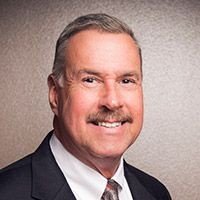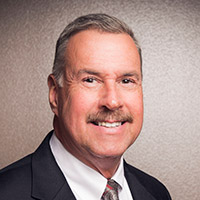7 Reasons to Hire a Retirement Income Specialist
Generating a lasting income stream once you quit working takes a different set of skills than saving and investing.


Profit and prosper with the best of Kiplinger's advice on investing, taxes, retirement, personal finance and much more. Delivered daily. Enter your email in the box and click Sign Me Up.
You are now subscribed
Your newsletter sign-up was successful
Want to add more newsletters?

Delivered daily
Kiplinger Today
Profit and prosper with the best of Kiplinger's advice on investing, taxes, retirement, personal finance and much more delivered daily. Smart money moves start here.

Sent five days a week
Kiplinger A Step Ahead
Get practical help to make better financial decisions in your everyday life, from spending to savings on top deals.

Delivered daily
Kiplinger Closing Bell
Get today's biggest financial and investing headlines delivered to your inbox every day the U.S. stock market is open.

Sent twice a week
Kiplinger Adviser Intel
Financial pros across the country share best practices and fresh tactics to preserve and grow your wealth.

Delivered weekly
Kiplinger Tax Tips
Trim your federal and state tax bills with practical tax-planning and tax-cutting strategies.

Sent twice a week
Kiplinger Retirement Tips
Your twice-a-week guide to planning and enjoying a financially secure and richly rewarding retirement

Sent bimonthly.
Kiplinger Adviser Angle
Insights for advisers, wealth managers and other financial professionals.

Sent twice a week
Kiplinger Investing Weekly
Your twice-a-week roundup of promising stocks, funds, companies and industries you should consider, ones you should avoid, and why.

Sent weekly for six weeks
Kiplinger Invest for Retirement
Your step-by-step six-part series on how to invest for retirement, from devising a successful strategy to exactly which investments to choose.
I often talk to clients and prospective clients about the “two halves” of their financial lives.
I call the “first half” wealth contribution and wealth accumulation and refer to the “second half” as wealth distribution and wealth transfer.
It all sounds pretty much the same, but of course it isn’t. The second half, your pre-retirement and retirement years, can have layers of difficulty that are far more unpredictable and uncontrollable than the first half.
From just $107.88 $24.99 for Kiplinger Personal Finance
Become a smarter, better informed investor. Subscribe from just $107.88 $24.99, plus get up to 4 Special Issues

Sign up for Kiplinger’s Free Newsletters
Profit and prosper with the best of expert advice on investing, taxes, retirement, personal finance and more - straight to your e-mail.
Profit and prosper with the best of expert advice - straight to your e-mail.
Why generating reliable income in retirement is so tough
During the first half of your financial life, you collect your paycheck, figure out how much you can afford every month to contribute (wealth contribution) to your nest egg, and carefully contribute that amount into your 401(k) or some other retirement account (wealth accumulation). You’ll likely run into a few financial obstacles in the first half, such as buying a house and the expenses that come with having children. And as you move forward, you might choose to broaden the asset allocation in your portfolio. But even if you make an investment mistake early on, you’ll have a good chance of catching up, because you’ll still have that paycheck coming in.
In the second half of your financial life, things tend to get more complicated. The consequences of making a mistake can be more costly, because now you’re taking money out of your accounts regularly (wealth distribution), and you no longer have your steady paycheck to invest.
Many of the obstacles are the same during one’s entire financial life, but new ones can appear during the second half. There are many specific reasons to consider working with a financial adviser during this second half, including these top seven:
1. Creating income.
When you don’t have that regular paycheck anymore, you lose your safety net. Instead, you must create income from the money you invested and make it last as long as possible. You’ll get a monthly boost from Social Security and/or maybe from a pension. But mostly it’s up to you and your adviser to figure out when and how much you’ll need from your retirement accounts. If you plan poorly, you could use up your money way too fast.
2. Outpacing Inflation.
Inflation has been pretty low for some time now, but experts are predicting a rise in the near future. Even if it lands at the Fed’s goal rate of 2% (and that’s lower than most are forecasting), you’ll see a decline in your purchasing power and, consequently, your standard of living. Most people think they won’t need as much when they’re retired, but even the basics will cost more. With this in mind, you’ll need to keep your nest egg invested but safeguarded against the unexpected.
3. Guarding against the unexpected.
The market is hitting record highs right now, but that can’t last forever. Whether it’s the inevitable market correction, some world political event or a natural disaster that sends things into a spiral, you have to be prepared. To be a success in the second half, you must understand your capacity and tolerance for risk. You won’t have as much time to come back if the market tanks when you’re in the retirement red zone, the 10 years before and after retirement.
4. Factoring in longevity.
Thanks to healthier lifestyles and medical breakthroughs, life expectancy for Americans has increased significantly. According to the Social Security Administration, a 65-year-old man today can expect to live, on average, until age 84.3, a 65-year-old woman can expect to live to age 86.6, and one out of every four 65-year-olds will live past 90. Naturally, you want to stay in the game for as long as possible, but that also means your investment portfolio may have to last for 30 years or more. If you don’t have a plan for guaranteed income, you could end up having to downsize the lifestyle you dreamed of or possibly depend on others for help.
5. Being tax efficient.
Many retirees focus on avoiding taxes in the short term only to be hit hard later on. During the withdrawal phase, the decision about when and where to remove assets should be combined with a plan to avoid landing in a higher tax bracket than you expected and keeping as much of your Social Security out of the taxable equation if possible.
6. Managing health care costs.
According to the U.S. Department of Health and Human Services, 70% percent of those who live past the age of 65 will need long-term care. You’ll need to put a plan in place to cover those costs – as well as your day-to-day health care – so these costs don’t eat up your retirement income.
7. Estate and legacy planning.
Most retirees hope to leave some sort of financial gift to their loved ones and/or a favorite charity (wealth transfer), but the planning often gets pushed to the back burner. You must include this as part of your overall financial strategy to make sure everyone gets what you want them to have and in a way that isn’t burdened by taxes.
How to find someone to help you in your second half
If you didn’t seek help from an adviser before, you’ll definitely want to find someone you can trust to help you in the second half. The problem is most financial professionals practicing today work with clients to accumulate money and make it grow. This is why I have listed the following questions to help you find a retirement adviser who has made the switch and has learned to manage the second half of the financial life for their clients.
Here are some questions to ask as you search for a retirement adviser:
- How are you going to create income for me in retirement?
- How are you protecting me in the event of a market downturn? What happens if 2008 happens again and the market loses 50%?
- How are you going to protect my nest egg but also preserve my purchasing power so I can pay my bills?
Make sure you go with an experienced adviser who’s equipped to help you enjoy the “second half” of your financial life and to wrap things up with a win.
Kim Franke-Folstad contributed to this article.
No part of this communication should be construed as an offer to buy or sell any security or provide investment advice or recommendation. Securities offered through GF Investment Services, LLC, Member FINRA/SIPC, 501 North Cattlemen Road, Suite 106, Sarasota, FL 34232. (941) 441-1902. Investment advisory services offered through Global Financial Private Capital, LLC, an SEC Registered Investment Advisor. SEC registration does not imply any level of skill or training.
Profit and prosper with the best of Kiplinger's advice on investing, taxes, retirement, personal finance and much more. Delivered daily. Enter your email in the box and click Sign Me Up.

Roger Ford has 30 years of experience in retirement income planning. After receiving his formal education at the University of Cincinnati, Ford started his own business, Conservative Financial Solutions. He is a Registered Financial Consultant (RFC) and obtained his certification through the International Association of Registered Financial Consultants. He actively holds Series 6, 63 and 65 licenses and is a licensed agent in life, accident and health and property and casualty insurance.
-
 Dow Adds 1,206 Points to Top 50,000: Stock Market Today
Dow Adds 1,206 Points to Top 50,000: Stock Market TodayThe S&P 500 and Nasdaq also had strong finishes to a volatile week, with beaten-down tech stocks outperforming.
-
 Ask the Tax Editor: Federal Income Tax Deductions
Ask the Tax Editor: Federal Income Tax DeductionsAsk the Editor In this week's Ask the Editor Q&A, Joy Taylor answers questions on federal income tax deductions
-
 States With No-Fault Car Insurance Laws (and How No-Fault Car Insurance Works)
States With No-Fault Car Insurance Laws (and How No-Fault Car Insurance Works)A breakdown of the confusing rules around no-fault car insurance in every state where it exists.
-
 For the 2% Club, the Guardrails Approach and the 4% Rule Do Not Work: Here's What Works Instead
For the 2% Club, the Guardrails Approach and the 4% Rule Do Not Work: Here's What Works InsteadFor retirees with a pension, traditional withdrawal rules could be too restrictive. You need a tailored income plan that is much more flexible and realistic.
-
 Retiring Next Year? Now Is the Time to Start Designing What Your Retirement Will Look Like
Retiring Next Year? Now Is the Time to Start Designing What Your Retirement Will Look LikeThis is when you should be shifting your focus from growing your portfolio to designing an income and tax strategy that aligns your resources with your purpose.
-
 I'm a Financial Planner: This Layered Approach for Your Retirement Money Can Help Lower Your Stress
I'm a Financial Planner: This Layered Approach for Your Retirement Money Can Help Lower Your StressTo be confident about retirement, consider building a safety net by dividing assets into distinct layers and establishing a regular review process. Here's how.
-
 The 4 Estate Planning Documents Every High-Net-Worth Family Needs (Not Just a Will)
The 4 Estate Planning Documents Every High-Net-Worth Family Needs (Not Just a Will)The key to successful estate planning for HNW families isn't just drafting these four documents, but ensuring they're current and immediately accessible.
-
 Love and Legacy: What Couples Rarely Talk About (But Should)
Love and Legacy: What Couples Rarely Talk About (But Should)Couples who talk openly about finances, including estate planning, are more likely to head into retirement joyfully. How can you get the conversation going?
-
 How to Get the Fair Value for Your Shares When You Are in the Minority Vote on a Sale of Substantially All Corporate Assets
How to Get the Fair Value for Your Shares When You Are in the Minority Vote on a Sale of Substantially All Corporate AssetsWhen a sale of substantially all corporate assets is approved by majority vote, shareholders on the losing side of the vote should understand their rights.
-
 How to Add a Pet Trust to Your Estate Plan: Don't Leave Your Best Friend to Chance
How to Add a Pet Trust to Your Estate Plan: Don't Leave Your Best Friend to ChanceAdding a pet trust to your estate plan can ensure your pets are properly looked after when you're no longer able to care for them. This is how to go about it.
-
 Want to Avoid Leaving Chaos in Your Wake? Don't Leave Behind an Outdated Estate Plan
Want to Avoid Leaving Chaos in Your Wake? Don't Leave Behind an Outdated Estate PlanAn outdated or incomplete estate plan could cause confusion for those handling your affairs at a difficult time. This guide highlights what to update and when.